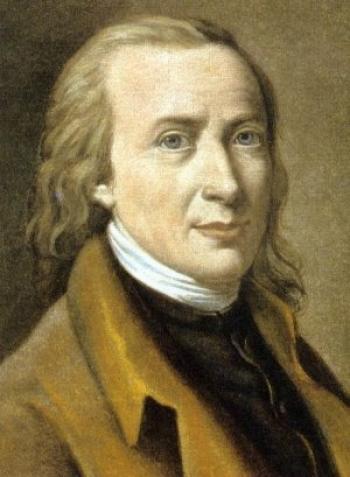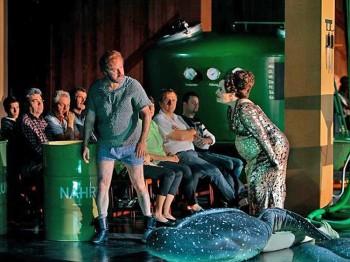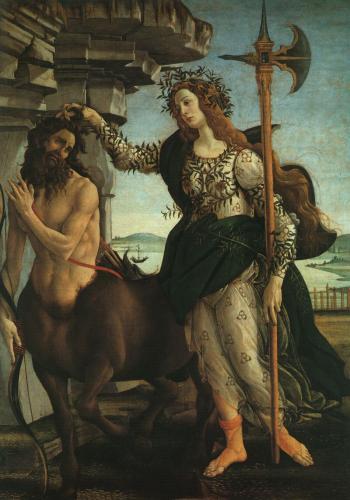Joseph Pulitzer said that “newspapers should have no friends” but that did not always refer to editors who put the newspapers together. Two centuries ago, one of those influential editors made a small German newspaper into a notable paper of its day.
The son of a clergyman, Matthias Claudius, emerged from news writing in the early 19th century as one of Germany’s most popular writers and poets. When being put to bed, countless children listened to a song based on his poem “Evening Song” (referred to by its first line “The Moon is Rising”—“Der Mond ist Aufgegangen”).
Born in 1740 in Reinfeld, northern Germany, Claudius studied theology at the University of Jena. He quickly changed his studies to philosophy, history, and law when disheartened by his professors’ ideological battles with the secular “enlightenment” movement. It’s not known if he earned a degree.
The Duke of Holstein in Kopenhagen engaged his services for a year after his studies, but Claudius quit to escape boredom and city noise.
Claudius then embarked on writing but could not find his own voice. He imitated the great writers of his day, drew mockery from contemporaries, and didn’t achieve much up to the age of 28.
While in Stockholm, he met one of Germany’s most acclaimed poets, Friedrich Gottlieb Klopstock. Klopstock’s brother-in-law edited a Hamburg newspaper and Claudius joined as a writer. He wrote for the paper for two years, developing his own style.
The paper targeted business interests and Claudius wrote humorous pieces and romantic poetry. His style didn’t fit its concept and he was forced to move on.
He soon moved to Wandsbeck, a small town that is now part of Hamburg. Two hundred years ago Wandsbeck was a village of 100 houses within a dense forest. The local sovereign felt responsible to educate his people and launched a newspaper to inform and entertain the local populace.
Duke Heinrich von Schimmelmann, who became rich in maritime trade, hired Claudius as editor-in-chief in 1771 for the feature section of The Wandsbeck Messenger (Der Wandsbecker Bote).
With a modest circulation of 400, the publication appeared four times a week and reported mostly political news. Claudius soon had Germany’s most renowned writers contributing—Lessing, Klopstock, Herder, and even Goethe provided content.
Claudius himself wrote poems and songs for the paper, as well as philosophical and religious essays.
His simple manner and the pure language of his writings hit the mark and appealed to popular taste. Using the pen name Asmus, he discussed the news of the day with a fictional Uncle Andres. Sometimes he used a humorous tone and sometimes he reflected with seriousness on people’s shortcomings. He based his writings on his understanding that a person should judge things with his or her conscience.
It was well known that the paper’s noble patron gained his wealth through trading in slaves and plantations overseas. Despite this, Claudius used the paper to speak out against slavery. His article published in 1773 in the Wandsbeck Messenger, “Der Schwarze in der Zuckerplantage” (“The Black Man in the Sugarcane Plantation”), is regarded as the first statement in German literature against slavery.
The Black Man in the Sugarcane Plantation
Far from my fatherland
I’m doomed to sweltering death,
without comfort in arduous shame
Oh these white men! smart and fair!
And I did to the merciless no harm.
Lord in Heaven! Help me poor black man!
No longer profitable after four years of operation, the Wandsbeck Messenger closed down in 1775. Claudius published his best articles in a small book: “Asmus Omnia Sua Secum Portans” (“Asmus Carrying All His Belongings With Himself”. Widely regarded as his essential work, he edited seven more volumes.
Evening Song
By Matthias Claudius
The moon is risen, beaming,
The golden stars are gleaming
So brightly in the skies;
The hushed, black woods are dreaming,
The mists, like phantoms seeming,
From meadows magically rise.
How still the world reposes,
While twilight round it closes,
So peaceful and so fair!
A quiet room for sleeping,
Into oblivion steeping
The day’s distress and sober care.
Look at the moon so lonely!
One half is shining only,
Yet she is round and bright;
Thus oft we laugh unknowing
At things that are not showing,
That still are hidden from our sight.
We, with our proud endeavour,
Are poor vain sinners ever,
There’s little that we know.
Frail cobwebs we are spinning,
Our goal we are not winning,
But straying farther as we go.
God, make us see Thy glory,
Distrust things transitory,
Delight in nothing vain!
Lord, here on earth stand by us,
To make us glad and pious,
And artless children once again!
Grant that, without much grieving,
This world we may be leaving
In gentle death at last.
And then do not forsake us,
But into heaven take us,
Lord God, oh, hold us fast!
Lie down, my friends, reposing,
Your eyes in God’s name closing.
How cold the night-wind blew!
Oh God, Thine anger keeping,
Now grant us peaceful sleeping,
And our sick neighbor too.
The son of a clergyman, Matthias Claudius, emerged from news writing in the early 19th century as one of Germany’s most popular writers and poets. When being put to bed, countless children listened to a song based on his poem “Evening Song” (referred to by its first line “The Moon is Rising”—“Der Mond ist Aufgegangen”).
Born in 1740 in Reinfeld, northern Germany, Claudius studied theology at the University of Jena. He quickly changed his studies to philosophy, history, and law when disheartened by his professors’ ideological battles with the secular “enlightenment” movement. It’s not known if he earned a degree.
The Duke of Holstein in Kopenhagen engaged his services for a year after his studies, but Claudius quit to escape boredom and city noise.
Claudius then embarked on writing but could not find his own voice. He imitated the great writers of his day, drew mockery from contemporaries, and didn’t achieve much up to the age of 28.
While in Stockholm, he met one of Germany’s most acclaimed poets, Friedrich Gottlieb Klopstock. Klopstock’s brother-in-law edited a Hamburg newspaper and Claudius joined as a writer. He wrote for the paper for two years, developing his own style.
The paper targeted business interests and Claudius wrote humorous pieces and romantic poetry. His style didn’t fit its concept and he was forced to move on.
He soon moved to Wandsbeck, a small town that is now part of Hamburg. Two hundred years ago Wandsbeck was a village of 100 houses within a dense forest. The local sovereign felt responsible to educate his people and launched a newspaper to inform and entertain the local populace.
Duke Heinrich von Schimmelmann, who became rich in maritime trade, hired Claudius as editor-in-chief in 1771 for the feature section of The Wandsbeck Messenger (Der Wandsbecker Bote).
With a modest circulation of 400, the publication appeared four times a week and reported mostly political news. Claudius soon had Germany’s most renowned writers contributing—Lessing, Klopstock, Herder, and even Goethe provided content.
Claudius himself wrote poems and songs for the paper, as well as philosophical and religious essays.
His simple manner and the pure language of his writings hit the mark and appealed to popular taste. Using the pen name Asmus, he discussed the news of the day with a fictional Uncle Andres. Sometimes he used a humorous tone and sometimes he reflected with seriousness on people’s shortcomings. He based his writings on his understanding that a person should judge things with his or her conscience.
It was well known that the paper’s noble patron gained his wealth through trading in slaves and plantations overseas. Despite this, Claudius used the paper to speak out against slavery. His article published in 1773 in the Wandsbeck Messenger, “Der Schwarze in der Zuckerplantage” (“The Black Man in the Sugarcane Plantation”), is regarded as the first statement in German literature against slavery.
The Black Man in the Sugarcane Plantation
Far from my fatherland
I’m doomed to sweltering death,
without comfort in arduous shame
Oh these white men! smart and fair!
And I did to the merciless no harm.
Lord in Heaven! Help me poor black man!
No longer profitable after four years of operation, the Wandsbeck Messenger closed down in 1775. Claudius published his best articles in a small book: “Asmus Omnia Sua Secum Portans” (“Asmus Carrying All His Belongings With Himself”. Widely regarded as his essential work, he edited seven more volumes.
Evening Song
By Matthias Claudius
The moon is risen, beaming,
The golden stars are gleaming
So brightly in the skies;
The hushed, black woods are dreaming,
The mists, like phantoms seeming,
From meadows magically rise.
How still the world reposes,
While twilight round it closes,
So peaceful and so fair!
A quiet room for sleeping,
Into oblivion steeping
The day’s distress and sober care.
Look at the moon so lonely!
One half is shining only,
Yet she is round and bright;
Thus oft we laugh unknowing
At things that are not showing,
That still are hidden from our sight.
We, with our proud endeavour,
Are poor vain sinners ever,
There’s little that we know.
Frail cobwebs we are spinning,
Our goal we are not winning,
But straying farther as we go.
God, make us see Thy glory,
Distrust things transitory,
Delight in nothing vain!
Lord, here on earth stand by us,
To make us glad and pious,
And artless children once again!
Grant that, without much grieving,
This world we may be leaving
In gentle death at last.
And then do not forsake us,
But into heaven take us,
Lord God, oh, hold us fast!
Lie down, my friends, reposing,
Your eyes in God’s name closing.
How cold the night-wind blew!
Oh God, Thine anger keeping,
Now grant us peaceful sleeping,
And our sick neighbor too.






